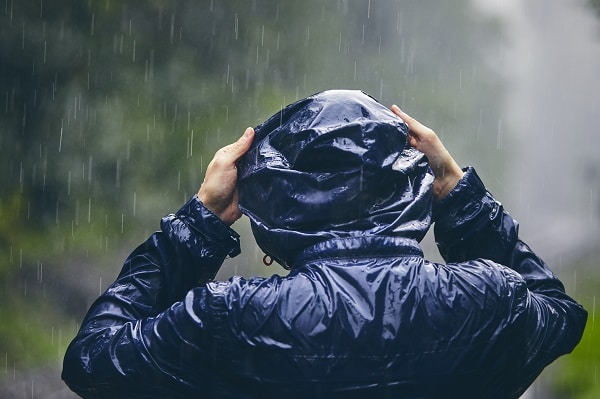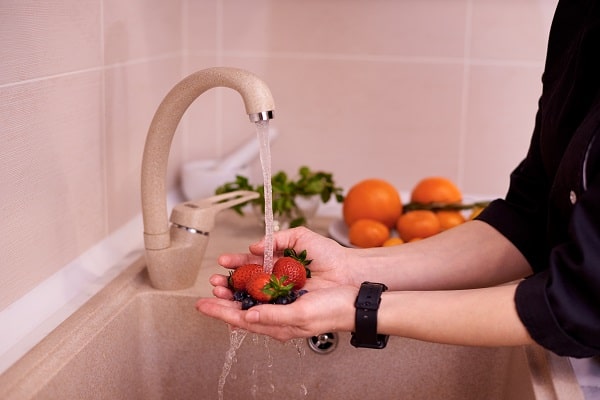Like Benjamin Franklin said, “When the well is dry, we know the worth of water.” Water is one of the most precious resources we have; hence we need to save it as much as possible. As many people are taking a step forward in conserving water, rainwater harvesting is gaining traction in more than one way.
Rainwater harvesting has been in practice since ancient times. Primarily, it was used to collect the rainwater for future use in areas where water was not available all year round. This practice has become more popular as many businesses and homeowners can’t rely on groundwater for all their needs.
Because of modern advancements, the rainwater harvesting system combines natural processes and high technology to collect and store rainwater for future use. The water is collected in large tanks like cisterns, and it is then stored in containers for future use.
Contents
- 1 What Is Rainwater Harvesting?
- 2 Availability Of Water
- 3 Reduces The Risk Of Soil Erosion And Flooding
- 4 Reduces Water Bills
- 5 It Can Be Used For Many Different Purposes
- 6 Rainwater Is Excellent For Irrigation
- 7 Maintenance Costs Are Minimal
- 8 Self Sustainability
- 9 Reduced Site Plan Costs
- 10 It Is Good For Skin And Hair
- 11 Is Rainwater Harvesting The Future?
What Is Rainwater Harvesting?

Rainwater harvesting is the collection of rainwater for retention and future use or stormwater management. Rainwater harvesting systems consist of the following components :
- Catchment – It is used to collect and store the rainwater.
- Conveyance System – A conveyance system carries the harvested rainwater from the catchment to the recharge zone.
- Flush – It flushes out the first spell of the rain.
- Filter – As the name suggests, it filters the collected rainwater and removes any debris or pollutants.
- Tanks or cisterns – These storage systems are used to collect filtered rainwater ready for future use.
So, what are the benefits of harvesting rainwater? Here are nine benefits of collecting rainwater.
Availability Of Water

Groundwater and municipal water are the two significant sources of water available to most people. But due to the scarce sources of groundwater, people can’t rely on it entirely. That’s where rainwater harvesting steps in. Rainwater harvesting gives pure water during the water crisis. It serves as the water supply that you can use anytime you want.
Rainwater harvesting is also very economical if you live outside the zone of the municipal water line as digging well is very expensive, and the water quality is not also guaranteed.
Reduces The Risk Of Soil Erosion And Flooding

According to the studies, raindrops can reach a speed of 20 miles per hour and throw soil up to five feet across and two feet high. This means that a rainstorm can wash away a one-half inch of dirt, resulting in the loss of around 4 billion tons of soil per year.
Collecting rainwater can prevent flooding and erosion caused by runoff in the low-lying areas and the gardens.
Reduces Water Bills

One of the significant advantages of rainwater is that it is a free source of water. Hence, by harvesting it, you can easily cut down on your annual water bills. These savings may look small, but they create a significant impact when you’re using collected rainwater for agricultural businesses or extensive gardens. In addition, collected rainwater can be used as a primary or backup source of water.
It Can Be Used For Many Different Purposes

The majority of water needed by a household is used for non-drinking purposes. Everything from washing utensils to clothes, bathing to water, your garden requires liters of water, and you can use rainwater for all these chores. You can also use stored water for bathing pets, washing vehicles, and for almost all cleaning purposes.
Rainwater Is Excellent For Irrigation

Rainwater is free from any chemicals found in the groundwater sources, making it perfect for irrigation purposes. In addition, using rainwater can flush the salt build-up from plants and soil. Also, harvested water is free from any type of pollutant or manufactured contaminant.
Maintenance Costs Are Minimal

After the initial setup, maintaining rainwater catchment assembly involves fewer costs and more of your time and energy. You just have to do regular cleaning and periodic check-ups to ensure there are no cracks or leaks. This will ensure your system is working correctly. Also, unless you’re planning to use rainwater for drinking purposes, there’s no need to install any kind of purification process.
Self Sustainability

Rainwater reduces the dependence on groundwater or municipal water, making you more self-reliant. Imagine pure water falling straight from the sky. You can store the water in large tanks or cisterns for later use.
Reduced Site Plan Costs

When it comes to construction, site development costs can be pretty intimidating. To comply with the stormwater regulations, developers often have to let go of vast fragments of land for stormwater retention. However, with rainwater harvesting, this land could be either sold or have homes built on them. Moreover, the space required for rainwater harvesting is much less than other stormwater retention techniques. That’s how the developer can save money, sell more land, and build a green community by taking care of the environment.
It Is Good For Skin And Hair

As you know, rainwater is saltless and doesn’t have any impurities. Rainwater becomes soft by going through the distillation in the process of evaporation. However, many people confuse the slick feeling rainwater provides and think it doesn’t remove soap, but in reality, it’s just the opposite.
Is Rainwater Harvesting The Future?
The earth’s population is rising at an alarming rate; hence there’s more demand for all the resources, including water. That’s why it’s estimated that rainwater harvesting will gain more and more popularity in the US and the rest of the globe. This is quite obvious as there are so many benefits, fewer costs, and positive effects on the environment. So, what’s there not to love?
Rainwater harvesting has a lot of benefits, and every homeowner uses it for different purposes. Whether you want pure water for your garden, extra water for washing your vehicles, or soft water for silky smooth skin and hair, rainwater checks all the boxes: the installation process is also straightforward, and there are no added maintenance costs.


